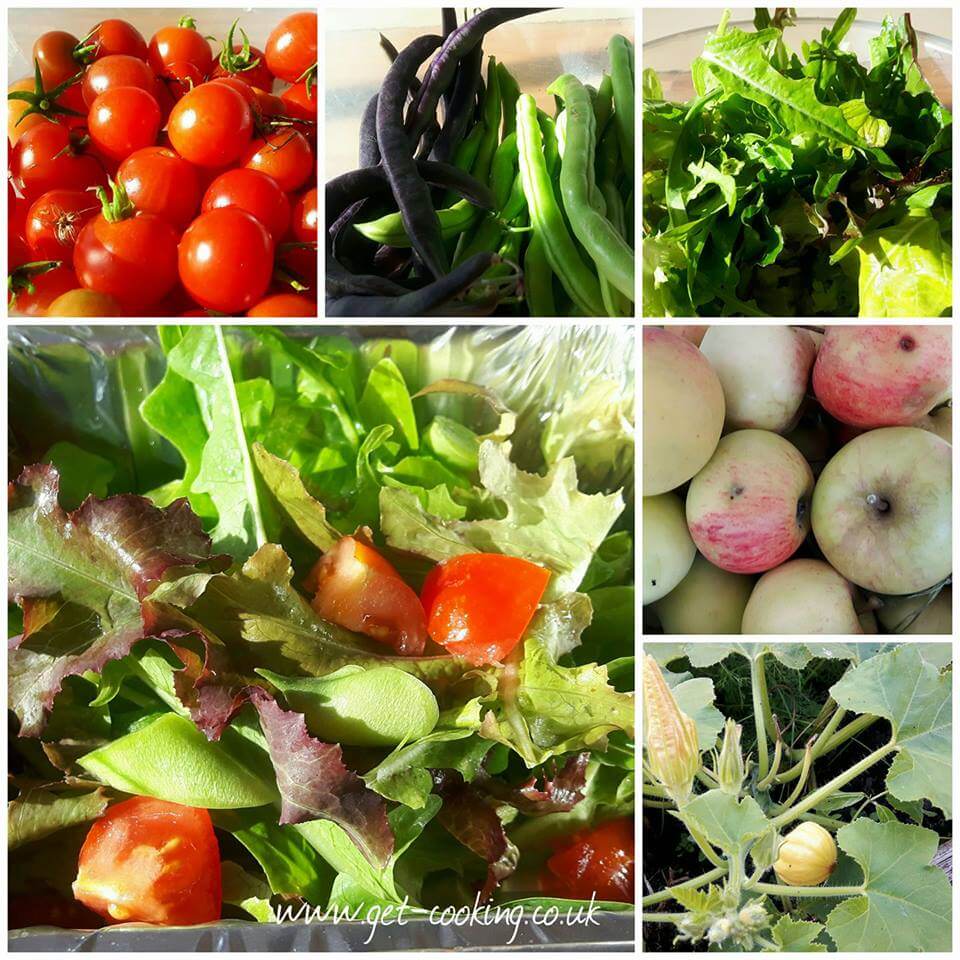Virtual Event
Menu
Menu
I am often asked about growing vegetables. I have had an allotment for about 14 years in total, but as a busy working mum, I don’t get to spend loads of time tendering my plants. Here are a few tips to help you get underway if you fancy starting a veggie patch in your back garden.

March is a great time to get planting seeds; peas, broad beans, garlic, leeks, and beetroot can be planted straight into the ground.
October to November is a great time to plant garlic, broad beans, and onion sets. In the Spring, it is lovely to see something growing in the ground. Leeks and spinach also keep growing through the winter, alongside winter salads such as lamb’s lettuce and Mizuna.
BENEFITS OF GROWING YOUR OWN FRUIT AND VEGETABLES
There is nothing that compares to picking your own food out of the garden. Freshly picked, it will have more nutrients, and will not covered be in pesticides, thus tasting superior to produce in the shops.
If you are looking for more inspiration and advice and are on Facebook, come and join wellies2bellies and share your garden adventures!
Or why not join one of our Vegan cooking lessons for inspiration!
Get in touch for more information on how you can increase your vegetable intake and be more creative with seasonal produce.
I can’t wait to use the produce I grow in my cooking lessons.
Live Zoom cooking classes and demonstrations for any occassion. Available for individuals, family, friends and work colleagues.
Our Get Cooking! Experience Gift Vouchers make a great present for all ages from 7 to 70, for birthdays, Christmas or just because! Vouchers are very popular with young adults about to leave home (and their parents!)
Whether you’re a complete beginner, want to brush up on basics, pick up new skills, or try out new dishes, Anne Marie can help you become a better cook.
6 Touchstone Road
Warwick Gates
CV34 6EE
T: 07956 955951
E: hello@get-cooking.co.uk
Send us your details to receive our newsletter:



Copyright ©2021 Get Cooking! | Privacy Policy | Terms and Conditions | Website Design by Your Site Matters